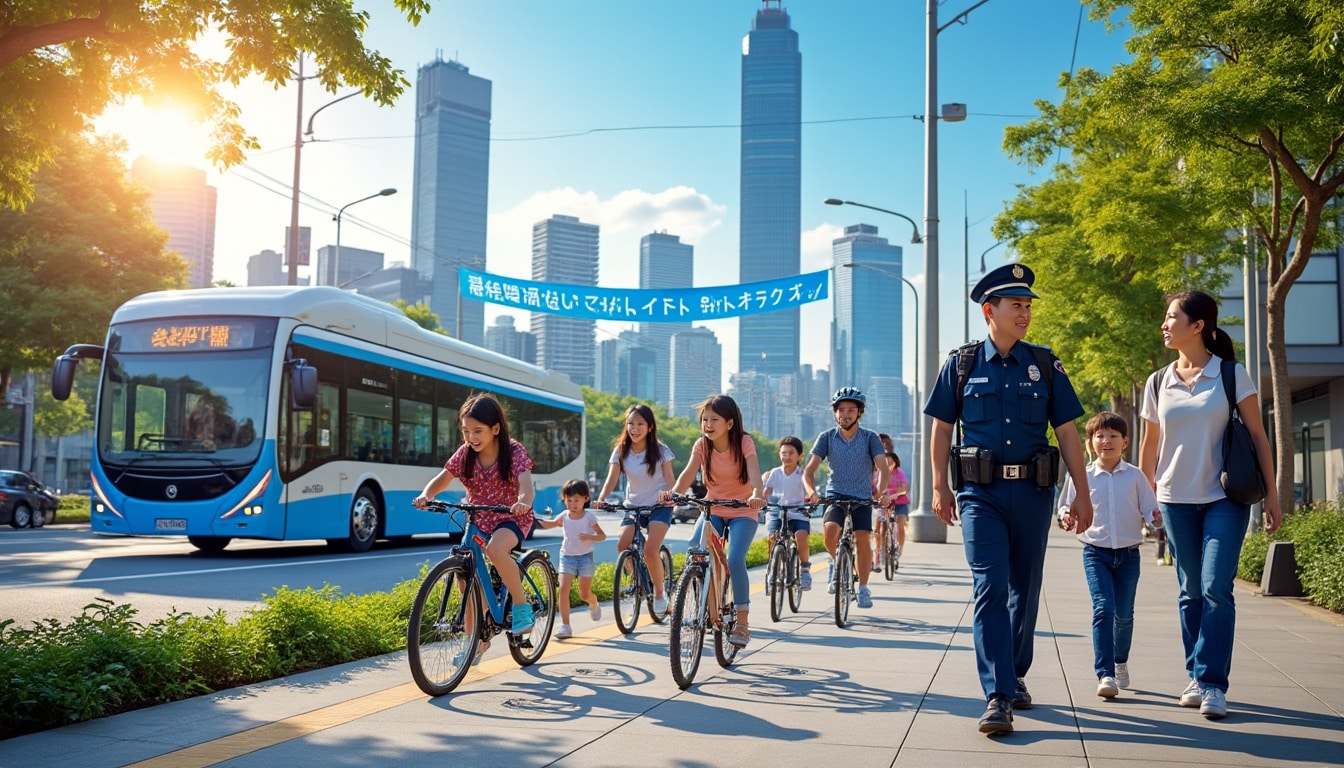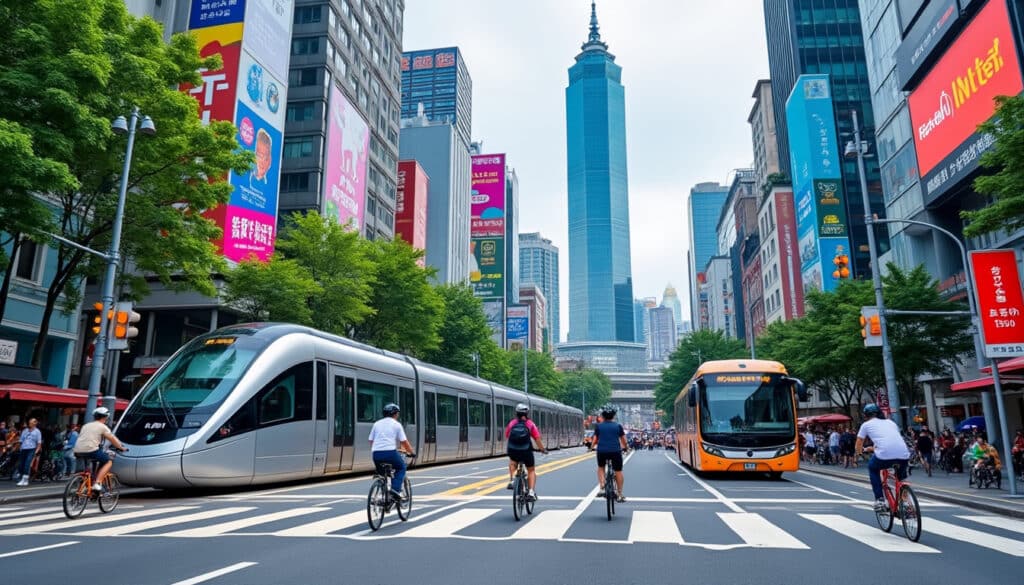Taipei, the vivacious heart of Taiwan, is not only known for its bustling night markets and majestic skyscrapers but also for its impressive safety standards. As travelers and residents seek a balance between exploration and safety, the city’s commitment to ensuring a secure environment comes into sharp focus. From low crime rates to highly efficient emergency services, Taipei stands as a beacon of urban safety. But what are the key elements contributing to its reputation? Let’s delve into the various facets of safety in Taipei and understand what makes it a remarkably secure city.
Exploring Safety Measures in Taipei
When discussing urban safety, Taipei is often highlighted thanks to its low crime rates and well-established public safety systems. The city’s commitment to maintaining a safe environment is evident through several key structures and initiatives that are designed to protect residents and visitors alike.
First and foremost, Taipei’s crime rates are among the lowest for major cities globally. The city has implemented a comprehensive approach to policing, with a keen focus on community-based patrols. This proactive form of policing enables the police to prevent crime by fostering strong ties with the community, creating a collective approach to urban safety. Moreover, organized crimes are rarely a threat to tourists, making Taipei an ideal destination for solo travelers and families alike.
Public safety measures also include stringent regulations for public transportation systems. The Taipei Metro, buses, and taxis are all monitored to ensure they comply with safety standards. With robust physical security measures in place, such as surveillance cameras and emergency alert systems, these initiatives contribute significantly to the city’s image as a safe destination. The metro stations, for example, are equipped with police booths, ensuring an immediate response to any potential security threats.
To further enhance transportation safety, the city’s buses and metro systems have implemented the StreetSmart Taipei initiative. This program combines traditional safety measures with modern technology. For instance, real-time tracking systems and digital ticketing offer not only an added layer of convenience but also security.
Traffic regulations play a pivotal role as well. From dedicated pedestrian pathways to enforced vehicle speed limits, the municipal government prioritizes pedestrian safety. While the city’s streets can be bustling, the meticulous planning and enforcement of these rules ensure a secure environment for all road users.
Underpinning these systems is the remarkable efficiency of Taipei Emergency Services. In situations requiring immediate intervention, from health emergencies to reporting crimes, the services ensure rapid response times. The availability of multilingual assistance also caters to foreign visitors, reinforcing Taipei’s commitment to international safety standards.
In essence, Taipei’s urban safety strategy is one of balance and foresight. Combining modern technology, community cooperation, and efficient emergency response, Taipei ensures a lifestyle where safety is seamlessly integrated into daily life.
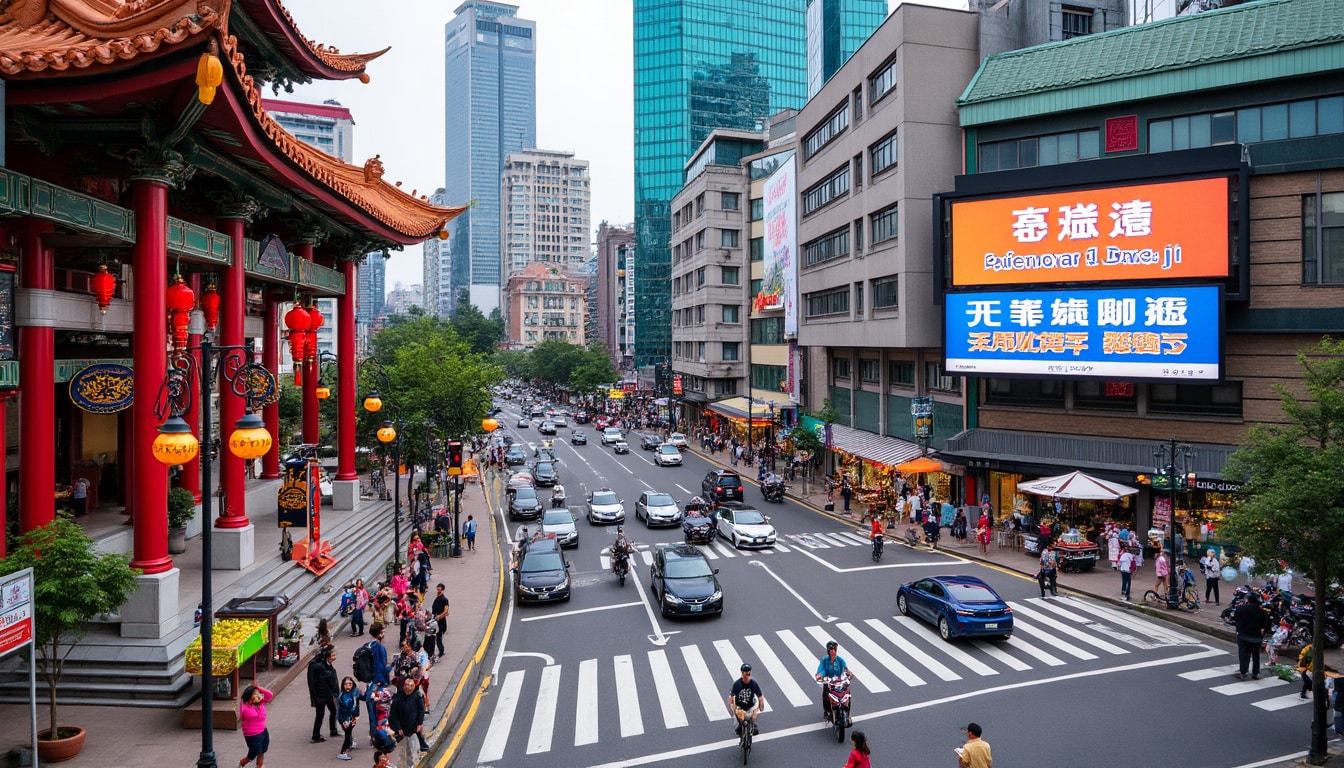
Ocean’s Safety Beyond Statistics in Taipei
Recovering from the bustling city roads, one would naturally wonder about safety within the more serene neighborhoods of Taipei. Indeed, the amalgamation of statistics and real-world experiences reveals a deeply comforting picture of this city.
Several districts in Taipei are renowned for their high safety ratings, with areas like Da’an District, Neihu District, and Xinyi District leading the charge. These neighborhoods are not only residential havens featuring vibrant cultural scenes but also exemplars of effective urban safety networks.
The Da’an District, for example, is well-known for its tree-lined streets and peaceful parks, providing a haven for families and expats. The district’s impressive safety record can be attributed to its engaged community and the presence of educational institutions that emphasize safety in urban living. This forms a layered approach, where safety is the joint responsibility of the community and city authorities.
Moreover, Neihu District stands out with its wealth of international amenities and tranquil natural landscapes. This region boasts impressive infrastructure that allows for safe transport, reinforced by the vigilant activities of local authorities and neighborhood safety patrols.
On the upscale side, Xinyi District combines safety with urban sophistication. With its towering skyscrapers and luxury brands, one might expect security to be a paramount concern. Here, modern security solutions, such as smart surveillance and access control systems, ensure safety is integrated seamlessly into the district’s renowned opulence.
These neighborhoods are connected through the Taipei Safety Network, an initiative that facilitates real-time sharing of safety information across districts. This collective approach to safety ensures that residents and visitors can access timely alerts and advice, contributing to overall city serenity.
However, it’s not just the neighborhoods that shine. Taipei’s vibrant approach to community safety extends into broader initiatives such as the Taipei Urban Safety program. This initiative encourages residents to remain vigilant and participate actively in community safety projects. By bridging the gap between governmental security agencies and residents, Taipei cultivates a sense of ownership amongst its citizens.
Thus, while statistical data affirm Taipei’s safety credentials, it’s the city’s community-centric approach and proactive safety initiatives that truly resonate. This combination ensures that whether you’re a visitor or a resident, the experience of safety in Taipei goes beyond mere numbers.
Evolving Transportation Safety in Taipei
Transportation, a vital component of any urban landscape, often presents safety challenges. In Taipei, however, transportation safety is meticulously managed to mitigate risks while offering convenience to users.
The Taipei Metro system, known for its efficiency and reliability, is an integral part of the city’s transport infrastructure. Maintaining a reputation for being one of the world’s safest metro systems, it’s supported by clear signage, surveillance systems, and security personnel stationed across stations. The Taipei Public Safety Initiative plays a role here by introducing several layers of passenger support, enhancing safety and ease of travel for both tourists and residents.
Meanwhile, bus services in Taipei complement metro travel, extending access to more suburban areas. The integration of digital services and SafeGuard Taipei initiatives, such as GPS tracking and on-board security cameras, has set benchmarks in public transit security.
Taxis, too, are a facet of Taipei’s transport narrative. With stringent licensing laws and fare regulations, taxis are considered a safe option for urban travel. However, it is prudent for passengers to opt for licensed taxis with meters. By adhering to these guidelines, tourists substantially reduce the risk of fare-related discrepancies.
Notably, Taipei’s commitment to sustaining a safe transport ecosystem is evident in its smart road systems. The city uses intelligent traffic management systems that not only control vehicular flow but also ensure pedestrian safety. This smart infrastructure is designed to adapt to traffic patterns in real-time, further underscoring the city’s proactive approach to safety.
In summary, Taipei’s transport safety systems represent the city’s forward-thinking ethos. By combining technology with regulatory policies, Taipei ensures its citizens and visitors navigate the city safely and reliably. This seamless integration contributes significantly to Taipei’s stature as a safe city.
| Transportation Mode | Safety Features 🚦 |
|---|---|
| Metro | Real-time surveillance, Emergency alarm systems, Automated announcements |
| Bus | Security cameras, GPS tracking, Emergency contact protocols |
| Taxis | Licensed with meters, Safety partitions, GPS monitoring |
Emergency Preparedness and Response in Taipei
With its unique geographical features, Taipei is accustomed to certain natural challenges, such as typhoons and earthquakes. Yet, the city’s adept preparedness and response systems ensure these events are navigated with minimal disruption.
The most crucial aspect during such events is the timely dissemination of information. Taipei employs the Taipei Security Solutions initiative, a comprehensive communication strategy that broadcasts alerts and safety instructions across multiple channels, including SMS, broadcasting networks, and social media platforms.
Equipped with advanced seismic monitoring, the Safety First Taipei program uses real-time data analytics to forecast potential earth tremors. These forecasts support governmental responses that prioritize public safety, dictating preparedness plans and swift evacuations if necessary.
For typhoon preparedness, Taipei boasts an elaborate infrastructure system designed to mitigate floods. Advanced drainage systems in conjunction with infrastructure regulations ensure fast water egress and minimal flooding during heavy rains. Moreover, community planning includes designated gathering places and distribution points for aid in the wake of potential disruptions.
In addition to natural disasters, Taipei’s emergency services extend their coverage to medical emergencies with efficiency. Hospitals are equipped with rapid response teams capable of providing immediate care across the city, an effort that underscores Taiwan’s acclaimed healthcare standards.
Ultimately, Taipei’s blend of technology and community engagement in disaster preparedness exemplifies an urban blueprint of resilience. From response teams to preventive infrastructures, Taipei is designed to weather challenges while ensuring public safety is never compromised.
Understanding Crime Rates and Safety Tips in Taipei
Despite its classification as one of the world’s safest cities, understanding crime dynamics and adopting basic safety measures remain crucial aspects of experiencing Taipei to the fullest.
The crime statistics in Taipei provide a reassuring picture. For visitors, the most common crimes involve petty theft, particularly in crowded areas. However, such occurrences are significantly lower compared to other global cities. Taipei’s low crime rate can be attributed to its effective police force and community vigilance.
The Taipei Safety Network and the Taipei Safety Alliance have introduced several campaigns urging citizens and tourists to practice vigilance, including advice on avoiding pickpocketing and petty theft. For example, tourists are encouraged to keep their personal belongings secure, be aware of their surroundings, and utilize well-lit streets, especially at night.
For an additional layer of security, many tourists opt to leverage the tourism hotlines and safety apps provided by city authorities. These resources offer instant access to emergency contacts and guidance, reinforcing the ease of navigating any safety concerns.
Crime rates aside, Taipei’s tourist-friendly environment invites visitors to explore its vibrant culture without significant worries about safety. However, as in any major city, awareness and common sense are valued companions for every traveler.
Ultimately, these measures and initiatives reflect a coordinated effort to sustain safety in Taipei—a city where urban life and security coexist harmoniously.
FAQs
- What are the top safety tips for traveling in Taipei? 🤔
– Always monitor your personal belongings
– Utilize official transport options
– Avoid isolated areas late at night - How does Taipei manage crime rates? 🚔
Taipei maintains low crime rates through stringent policing, community engagement, and efficient use of technology in monitoring and response systems. - What should I do in case of an emergency in Taipei? 🚨
Immediate access to English-speaking services, the city’s emergency hotlines like 119 for fire and ambulance, and 110 for police assistance provide crucial support.
For more tips on staying safe in Taipei, be sure to visit the Safety Tips for Taipei page.

As an urban oasis brimming with culture, Taipei tantalizes travelers with its eclectic mix of street food, night markets, and historic temples. However, navigating this vibrant city safely remains a priority for both newcomers and seasoned travelers. While Taipei is…
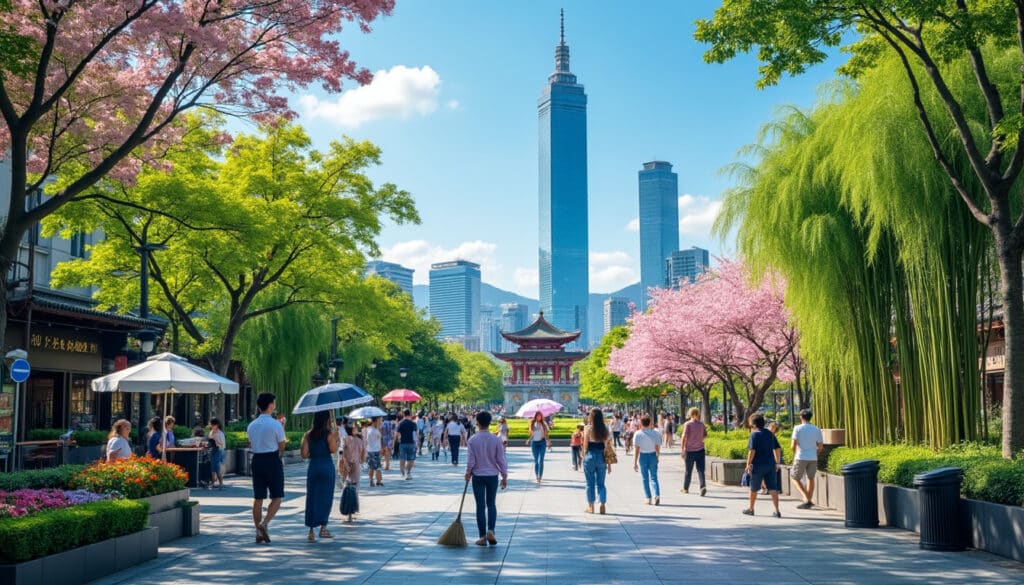
Cleanliness and hygiene in Taipei
Taipei, the bustling capital of Taiwan, is a city where tradition and modernity merge seamlessly, offering residents and visitors a vibrant, multifaceted lifestyle. Beyond its iconic skyline and rich cultural scene, Taipei is noted for its commitment to cleanliness and…
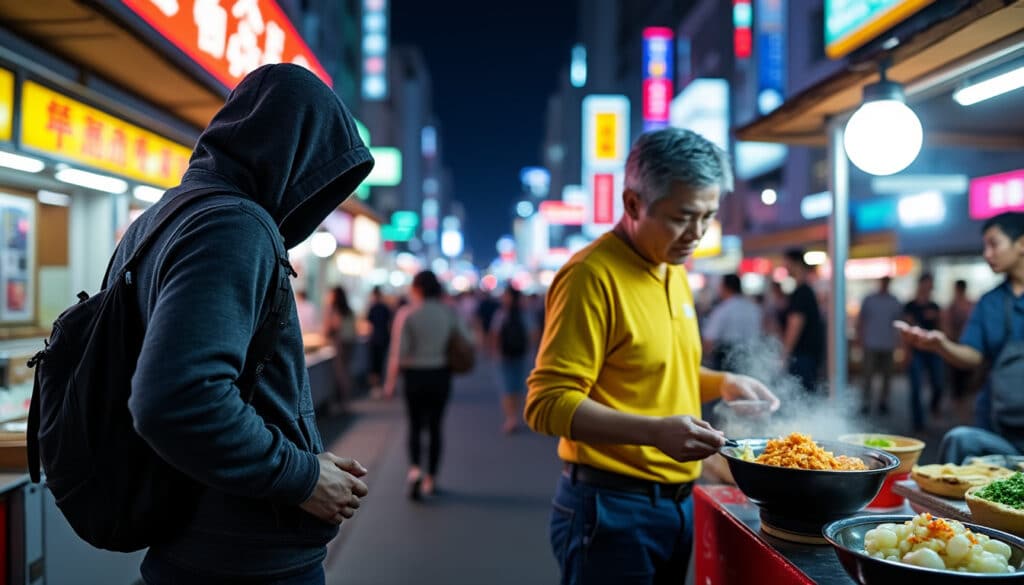
Pickpocketing and theft in Taipei
Despite Taipei’s reputation as one of the safest cities in the world, petty crimes such as pickpocketing and theft occasionally occur. For travelers and locals alike, understanding the risks and taking appropriate measures can help maintain this city’s sense of…
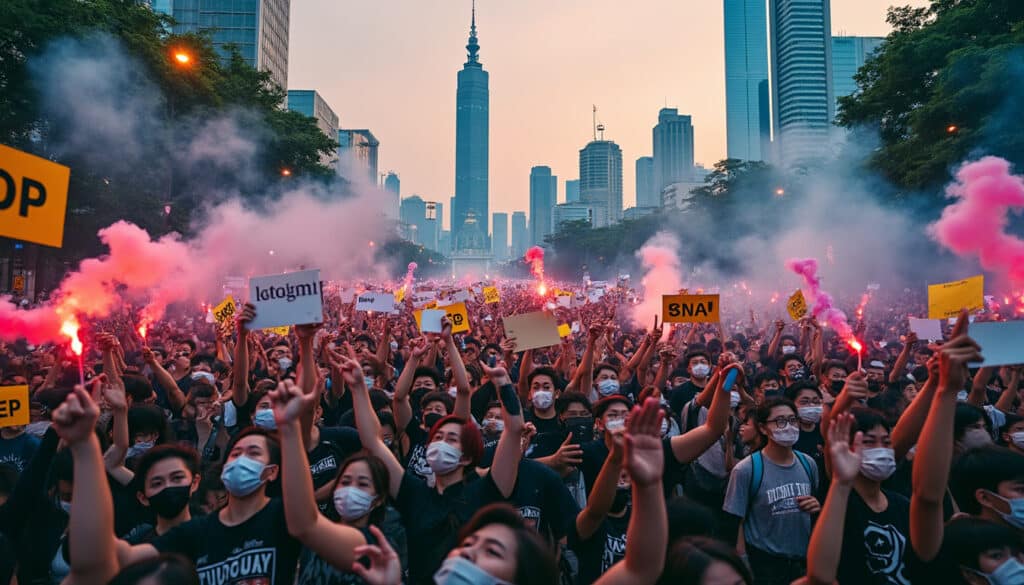
Protests and social unrest in Taipei
Recent years have seen Taipei become the epicenter of significant political and social upheavals. The capital of Taiwan has been the stage for widespread protests that have highlighted deep-rooted divisions within the country’s political landscape. At the heart of these…
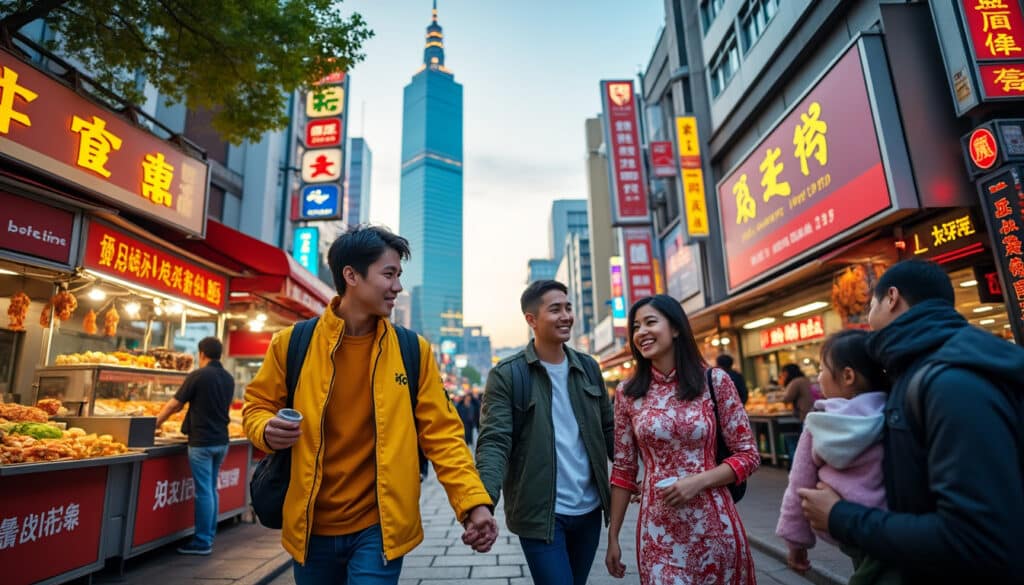
Safety in Taipei for travelers from different countries
Taipei, the bustling capital of Taiwan, welcomes travelers with its rich cultural tapestry, modern marvels, and an enviable reputation for safety. As visitors from around the globe flock to this Southeast Asian jewel, questions about security and well-being naturally arise.…

